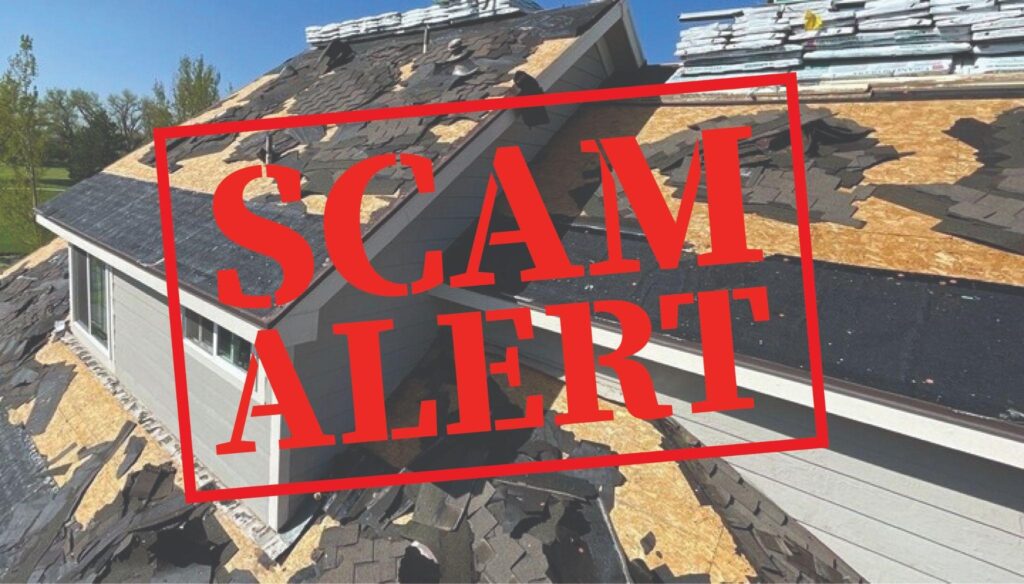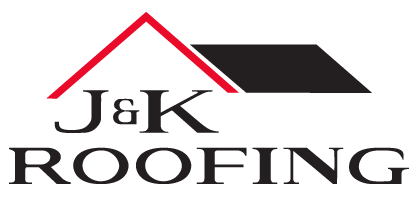
5 Clues That a Storm Chaser Is at Your Door
It’s predictable: a heavy storm rolls through your area, bringing with it strong winds, rain, and hail, and within a few days, you have a stranger knocking on your door to tell you about the damage that’s been done to your roof. Don’t fall for it!
Due to the number of hail storms that hit Colorado, it’s consistently one of the top 5 states for hail claims. That means it’s also one of the most popular states for roofing storm chasers to frequent, trying to make some fast cash. While most contractors are honest and reputable, others are not. In fact, the highest number of consumer inquiries to the Better Business Bureau of Denver-Boulder involve selecting reputable roofing contractors.
This article will help you understand what a storm chaser is, how to identify them, and why you want to avoid them.
What Is a Storm Chaser?
When we mention storm chasers, we’re not talking about weather trackers who travel in heavy vehicles collecting data about significant weather events. We’re talking about predatory roofing companies that follow storm patterns to take advantage of uninformed homeowners.
These companies tend to show up within 1–2 days after a heavy storm, and they often come from out of state. Their goal is to convince you that you have hail damage to your roof, and they often exaggerate the damage—or make it up entirely—to get you to hire them.
Why You Should Avoid Storm Chasers
Roofing storm chasers are usually running a sort of scam. In particular, will often make false promises, insist on full payment upfront before work is completed, and sometimes even create damage where none occurred. But no matter how long you’ve owned your home or how much experience you have as a homeowner, storm chasers will still try to get your business.
Many times, storm chasers:
- Offer deals and prices that seem too good to be true
- Lack adequate training to properly complete a roofing project
- Disappear as soon as possible—sometimes without completing the work
Simply put, if you hire a storm chaser, you may be stuck paying for unnecessary repairs to your roof. An inexpensive roof is no bargain if you have problems, especially if your roofing contractor is no longer around to honor the labor warranty.
Clues for Identifying Storm Chasers
While some storm chasers may be able to finish the work they agree to, many just want your money and don’t prioritize your project. Here are five clues that a storm chaser is at your door.
1. They Knock on Your Door and Immediately Say You Have Storm Damage
The fact that they came to you without you initiating the interaction is a bad sign. They often exaggerate damage to try to scare you into hiring them. If you ask them questions, they may try to skirt around a true answer and leave you feeling like you haven’t been heard. Beware of unsolicited offers. Most scams begin with a contractor who “just happens to be in the area” and notices your roof or home has the appearance of needing repairs from the outside. Roofing scams typically increase in frequency after a powerful storm, so stay alert.
2. They Say Your Insurance Company Sent Them
One of storm chasers’ favorite tactics is to suggest that they’re working with your homeowner’s insurance company. Don’t fall for this trick! You can always follow up with your insurance company to double-check how legitimate the claim is. A reputable roofer will provide you with an estimate and documentation of any damage and help you navigate the process with your insurance company.
3. They Use High-Pressure Sales Tactics, Limited-Time Offers
Storm chasers come into town with the idea that they’ll make a lot of fast money from roofing projects. They often use high-pressure, time-sensitive sales strategies to rope you into an agreement. Go with your gut—if they give you a bad feeling, you can politely decline and send them on their way.
4. Their Information Is From Out of State
Check their license plates to see if they have out-of-state tags. Look at their contact information—is their phone number local? Do your research to see where they’re located and what kind of reviews they have. Review their information online at the Better Business Bureau. While there’s no statewide registration or licensing requirement in Colorado, all roofers should be licensed as a business and insured. Click here to see if a roofing business is licensed and can perform work in Colorado.
5. They Request Advance Payment, Often in Cash
It’s common for a legitimate roofing company to ask for partial payment upfront, but the bulk of the payment should come after substantial completion of the project. If they ask you to pay the full amount before any work begins, they’ll likely take the money from you and never return to work on your roof.
We’re Ready for Your Project
Storm chasers will always be around in Colorado, but hopefully, you know enough now to spot the red flags and avoid becoming another victim of their shady practices. Be sure the company you choose is reputable, and local.
Get in touch with us today (303-425-7531) to schedule a free inspection and talk through your roofing needs.
